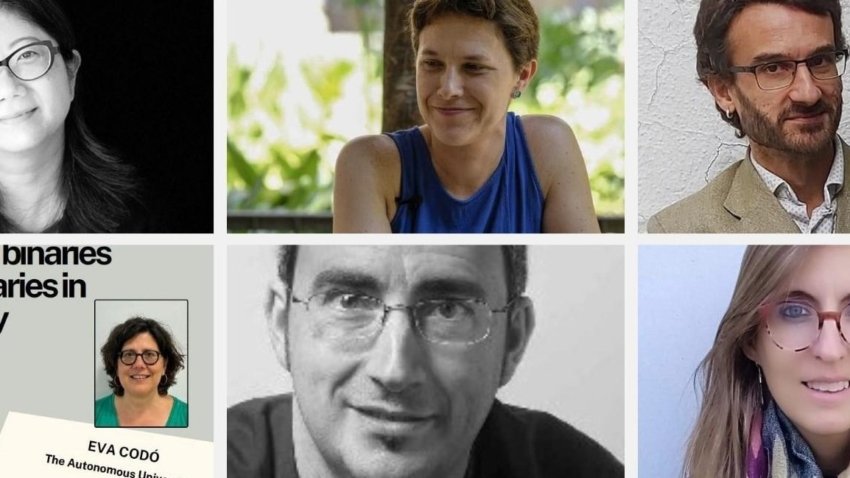The first to start activities this fall has been the Josep Pla Chair at Stanford Universitywhich has as a visiting teacher Oriol Ponsatí-Murlàfrom the University of Girona. Under the title Saved in Translation: An Intellectual Topography of the Mediterranean, from Classical Antiquity to Nowadays, This course explores, over 10 weeks, the role of the Mediterranean as a cultural meeting and exchange space, from the classical antiquity to this day. The course emphasizes the central role of translation – from Greek to Arabic, Arabic to Latin, Greek and Latin to Romance languages - in the configuration of what we understand by “western culture”. The aim is to draw a cultural topography that shows how these dialogues and translations have shaped fundamental ideas in the western tradition and have contributed to their dissemination around the world.
In September also starts the First edition of the NACS Itinerant Chair which will take place at the University of Massachusetts -AMHERTT from September 29 to October 3. By the teacher H. Rosi Song, will combine academic research, outreach and gastronomic experience. Song will present the project Relish ((Reframing European Gastronomy Legacy Through Innovation, Sustainability and Heritage), which rethinks recipes as educational tools linked to cultural identity, sustainability and climate change, in an event open to the public in collaboration with the Campus Restoration Services. In addition, will give a session to the course Spanish/Catalan 330, Food and Famine in Spanish Literature and will pronounce a conference at the Five College Consortium On Catalan national gastronomy and identity. His stay will also include meetings with postgraduate students in Catalan Studies.
By the end of September Jaume Subirana (UPF) will participate as a guest teacher in the Joan Coromines Chair of the University of Chicagoteaching the course “Literary Polysystems in Spain: Liteature, Language, and Place”in which he will explore the rich and rich heritage of the Iberian Peninsula, which has persisted throughout history despite the homogenizing forces of globalization. The coexistence of different languages and literatures offers an extraordinary laboratory for cultural research, and what some understand as challenges, peculiarities or simple curiosities are, in fact, vibrant and prosperous cultural communities. The emergence and growth of literary traditions in Asturian, Basque and Galician will be addressed, with the aim of reflecting on the concept of “tradition” in contemporary literary creation based on the study of three fundamental works in Catalan literature: Broken mirror, the gray notebook and Estremida memory.
From 6 to 10 October, the Mercè Rodoreda Chair of the Graduate Center of City University of New York will host Eva Codó (UAB) In a seminar where language policies in Catalonia will be examined in the last decade.
The teacher Míriam Cabré (University of Girona) has been invited to the University of California-Berkeley To make a teaching stay between October 27 and November 19, 2025. Cabré will participate in the seminar “Culture and Power in Medieval Iberia: The Catalan Troubadours”. He will also participate in some sessions with the students of the Catalan classes taught by Professor Ana-Belén Redondo.
Finally, Marta AntonAssociate Professor at UPF, will give a seminar about “Picasso y Cuba: (re) Decolonial interpretations in art and literature”at the Chair of Catalan Culture of the University of Havana. The aim of the seminar is to analyze the artistic resonances on Picasso in the plastic arts and the Cuban literature present in the work of prominent painters and Cuban writers of the 20th and 21st centuries.
Apart from expanding academic exchange in the field of Catalan studies with the main prestigious university centers on an international scale, these activities are clearly aligned with the strategic axes of the Institut Ramon Llull to support creators, academics and intellectuals so that they participate and influence the debates on the great contemporary challenges and the emerging tendencies from their own, plural and critical perspectives.







